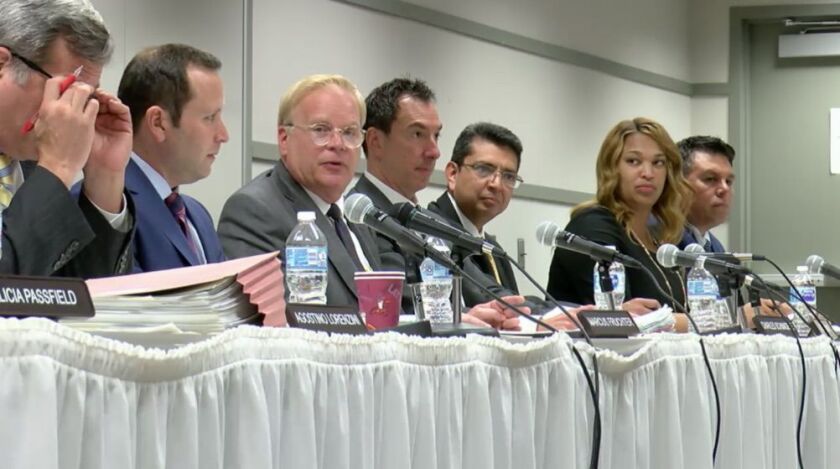After a consultant’s report dampened hopes earlier this summer on the prospects of a Chicago casino, Mayor Lori Lightfoot joined a chorus of casino industry interests who insisted state lawmakers would have to go back to the drawing board to make the potential cash cow a reality.
Now, that word is coming directly from the Illinois Gaming Board.
Leaders of the state agency responsible for overseeing all Illinois casinos unanimously passed a resolution Monday recommending the General Assembly “consider making modifications to the terms of the Chicago casino license” authorized under Illinois’ sweeping new gambling expansion.
That’s in light of a feasibility study that found “onerous” taxes would prevent any developer from getting the financing to break ground on the city casino.
The five-person gaming board passed the resolution without discussion — and without making any specific recommendations on those changes they say are necessary.
And that’s all they had to do, by the letter of the law.
“Our role is merely to refer to [the General Assembly] for consideration, and it’s up to them to do as they deem appropriate,” newly appointed gaming board chairman Charles Schmadeke said after a Monday meeting.
It’s the latest step along a winding path toward a long-sought Chicago casino that has eluded state and city leaders for decades.
The resolution sets the stage for hectic negotiations among lawmakers and the city during the fall veto session in Springfield. But the question remains whether Lightfoot has any leverage left as other municipalities plow forward with the five other casinos they secured for their own districts in the whirlwind spring legislative session.
At the city’s request, the gambling expansion signed into law June 28 by Gov. J.B. Pritzker included a provision requiring the gaming board to commission an independent study on the feasibility of a casino in Chicago, analyzing the ability to finance the massive, privately owned gambling den.
Union Gaming Analytics returned that study in mid-August, determining a casino couldn’t get off the ground in Chicago because of the “onerous” tax structure laid out in the law. With an effective tax rate of 72% — including a third of revenue earmarked for city police and firefighter pensions — on top of colossal “reconciliation” fees, no developer could secure financing with such razor-thin profit margins, the Las Vegas firm concluded.
But the consultant did say the potential 4,000-gaming position city mega-casino could eventually rake in more than $1 billion annually — nearly triple the annual take of Illinois’ current highest grossing casino in Des Plaines, and easily tops in the Midwest. That windfall could only happen at a downtown, “tourist-centric” location, the consultant said — not at one of the South and West sides sites offered up by Lightfoot’s office.
Upon release of that damning report, Lightfoot said she knew the tax structure would be a road block and vowed to work “with the governor and legislative leaders to roll up our sleeves and work hard on a bill that gets it right.” Instead of offering up an alternative structure, her office said they would “respect the process,” as the law gave the gaming board 90 days to review the study and make a recommendation on changes.
But with Monday’s resolution, the ball is back in the court of the city and state lawmakers.
Schmadeke wouldn’t even break his poker face to weigh in on whether he agreed with the findings of the feasibility study.
“The board did exactly what the law commanded us to do,” gaming board administrator Marcus Fruchter said. “There’s nothing left for us to opine about.”
Pritzker’s office did not immediately respond to a request for comment.
A Lightfoot spokeswoman said the board’s move only underscores the consultant’s finding that “under the current tax structure a Chicago casino is not feasible nor financeable.
“Mayor Lightfoot is committed to working in solidarity with the Governor and the General Assembly to revise the tax structure,” said spokeswoman Lauren Huffman.
Lightfoot raised the stakes during her “State of the City” address last month, asserting “if we don’t secure this casino and the revenue it creates, we will be forced to make painful choices on finding other revenue sources. And we all know what those are, the sources we wish to desperately avoid,” the mayor said, apparently referring to another possible round property tax hikes to shore up Chicago’s desperately underfunded pensions.
The fall veto session begins Oct. 28 in Springfield. The gaming board’s next scheduled meeting is Nov. 7.






